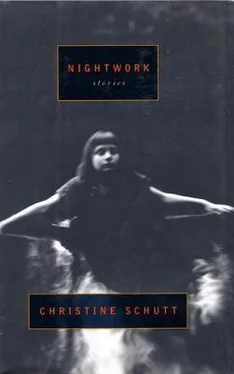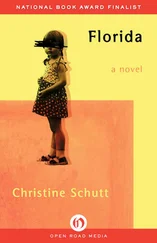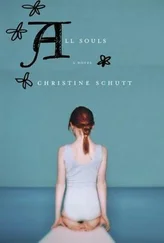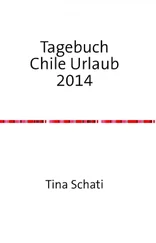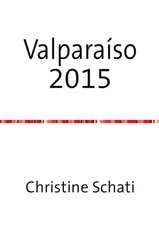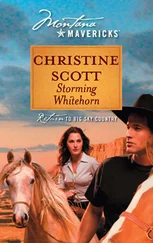But nothing much here would burn entire, I think, only slowly in a noxious stink of plastic, canes smoking into lips, braces stumped as closed-off joints on amputees. A fire such as this would be all smoke.
So what are we going to do with these appliances, these sheets? Such things, so evidently used, are they ever used again?
“Would you sleep on these sheets?” I ask my sister — and these are good heavy sheets we have here, warm, heavy sheets. They smell of bandages and soap.
No, she shakes her head, which means, I guess. we’ll throw them out like so much else toward the making of the new house, the house Mother always said she wanted: “Hose down, no care.” And she has almost achieved it there in the hospital with the nurses she calls out to by name. “Nancy, Laurie, Gail, come in and meet my daughters.” These smiling nurses with stories of us in their eyes, we have met them before. “Yes, yes,” the nurses say, pinching off the dead heads of donated flowers, standard arrangement — no smell. But there is baby’s breath and a foil balloon that someone has tied to the rail of Mother’s bed. This could be a party, a birthday party, but this is every day where Mother lives: dessert as something special, as having come from someplace special, sheet-cake occasions down the hall or weddings bonged across the street. “What a treat!” the nurses coax. “Sit up, dear. Eat,” they say, and I see, or imagine I see, the soldier that is Mother, the yellow opalescent skin on her thin arms, her thin arms trembling to raise herself from bed. Oh, why should it be strange how, loving death the way she has, our mother wants to live?
Outside the attic window, there are no streets, only scrub and scratchy plants, wind or quiet, dust — dust enough for me to write Please Wash Me on the window.
My sister holds a broom and sweeps.
AN UNSEEN HAND PASSED OVER THEIR BODIES
My son is coughing in his sleep next to me in my bed, where he has come to spend what is left of this night. My son’s cough is red, noisy, and loose, a clattering wagon on its jagged way down, with me all ears to the racheting sound of my child-self in the bed next to Dad, who is tossing and threatening. “Stop coughing,” Dad says. “You’ll wake the dead.” Bat flap and smoke in the dark of his voice make me hold back this need, hold back from Dad, whose fleshy skull clenches every raw cough I cough. I want to be still. I fix on the chafed, pitted folds at his neck with a promise to sleep, as if my quiet could ease and uncoil this turned-away man, but I can’t and it’s out, rude air through the pipes, a dry sound full of rust. Dad says, “I’m too old for this.” He says, “Oblige me,” and I watch the words turn in this room he calls his own. Dad’s porch, sleeping headquarters, off-limits. How did I get here, close enough to smell him? That’s what I want to know: How did I?
Rolled, damp toweling — the kind Dad sometimes swipes at me — he smells like that. He smells like shaving water, where he floats his brush and lets me blow apart the suds before he snaps a towel, says, “Out. That’s enough; go get dressed.” I only pretend to leave. He never shuts the door all the way, and I want to see, and I can, if I am careful, if I am clever. From where I am hiding, just outside the bathroom door, I can see him. I can see him oiling his back under the sunlamp. It makes me feel lazy just watching him: the way my father massages himself and rolls his shoulders in this heat. So much heat, so much white in wild refraction off the swivel mirror; I see he has to squint to see the parts of himself in the magnified side, where the black eye, lashless and fast, his eye, finds me.
I am almost sure of this — that my father only pretends I am not there.
Like he pretends in his bed this dopey snooze; says, “I give up”; says, “Let me just shut my eyes.”
Am I not the woman he cannot keep out?
I want to wake him still.
I want to shrill in his ear: “Look, you!”
But the thought of him makes me close my eyes, try to sleep, a girl.
I hold to the edge of my bed and watch him sleep. I don’t move. I let my son take up all the room he wants, knowing he will slip away before I am even awake, and even after I have been so quiet, so good.
Someone else was in the room, I think — the second wife. High-parted hair, lips absently applied — the second wife had been the one to go on talking to my grandfather. Not the first — the first left, licking salt from the wide rim of her glass; the third, we knew, was spending Daddy’s money. My grandfather said to me, “We wanted you to hear this,” and I think I remember it happening this way; there was another in the room, not just my father and my grandfather but my father’s second wife.
We were told — my grandfather told us, speaking to me, “Your father is tired; he needs a rest.”
I saw my father’s head fall forward — monk’s bald spot, mad curls. Broad, broad-hearted, rufous chest, a squalling red — my father was alive and in the world and feeling everything extremely.
Did she move to touch him, the blur behind, whoever else was in the room — because I didn’t. In the face of that face then lifted to me, I smiled to hear him name a place, which when I heard it, I might even have been there, or else my memory is so profligate and willfully confused, but I think I always knew this place where my father was going. In a long car that gentled over the grated threshold, my grandfather took him, and sometimes, me, past swells of lawn and more lawn, wind and slashes of high blue sky in the heads of furious trees. Odd men they were I saw standing in the spiny leaves, pinching winterberries; bent-over figures in discourse with the air. How could my father sleep here? I wanted to know, but the second wife was in the car, too, saying it was hard to be surprised this way, come upon by family.
“Visitors is what we are. We won’t stay long,” my grandfather said, and we had made it through the lunch when we saw the other slinkers in the damp strawed beds, heard them call, “Professor!” bow and smirk; and I thought he seemed pleased, my father, until he turned to ask, “Why this?”
“Why what?” my grandfather asked. “Tell me what. What are you asking? What is it you want? Do you know what you want? Do you know what you are doing?”
My grandfather said, “You have no idea,” but my father kept behind, speaking rapidly, voice soft, my father asking why when the windows whirred up, and he was left turning in the turnaround to see us go. A man in a short robe, left unsashed, how did it feel to him, I wondered, the worried, furrowed inside seam of his short robe’s pocket?
In the coats he left behind, I had gritted my nails on the inside seams of Father’s pockets, gritted and sucked them clean.
I did not see him then for a time that passed in the way of winter, colorless and stubbled and flat. The days clicked past same as hangered linens from my grandfather’s laundress, underwear cupped in puffs next to slips — my own, only my own, nothing of my father’s the way it had been when we shared in the last house a dresser, a closet, a bathroom down the hall.
My father’s knocking, I thought I heard it, and I remembered.
“What,” Grandfather said, “you must remember what.”
“See here,” my grandfather said to the company — not her, but men like my grandfather with vacation faces, smooth and oiled and brown. Same suits, thin cuffs, glint of heavy watches when they signed. Here and here and here — so many papers.
“What am I a party to?” she asked when she arrived, knife-pleated skirt and filmy blouse, spectacles for reading, a pair for seeing out.
Читать дальше
